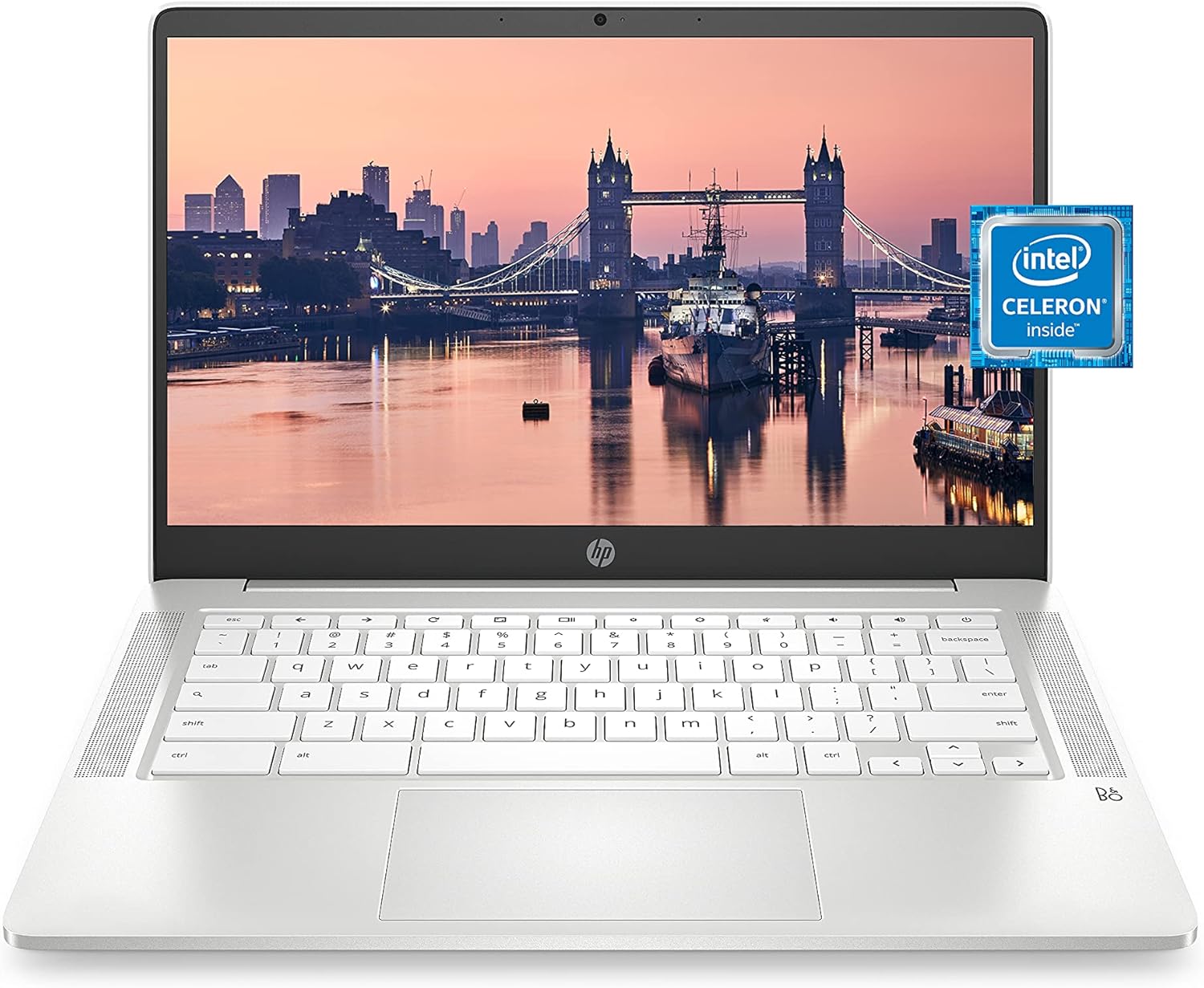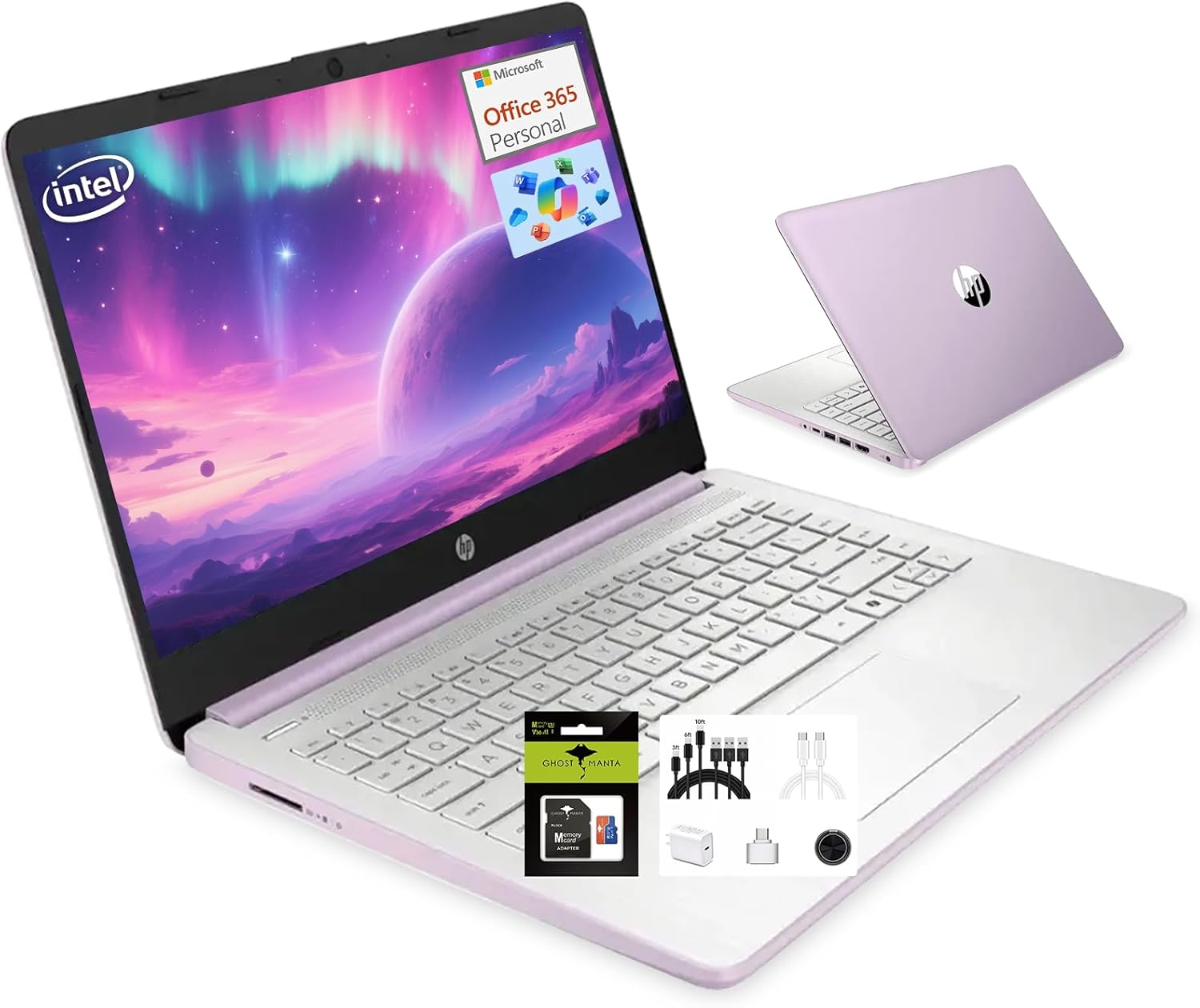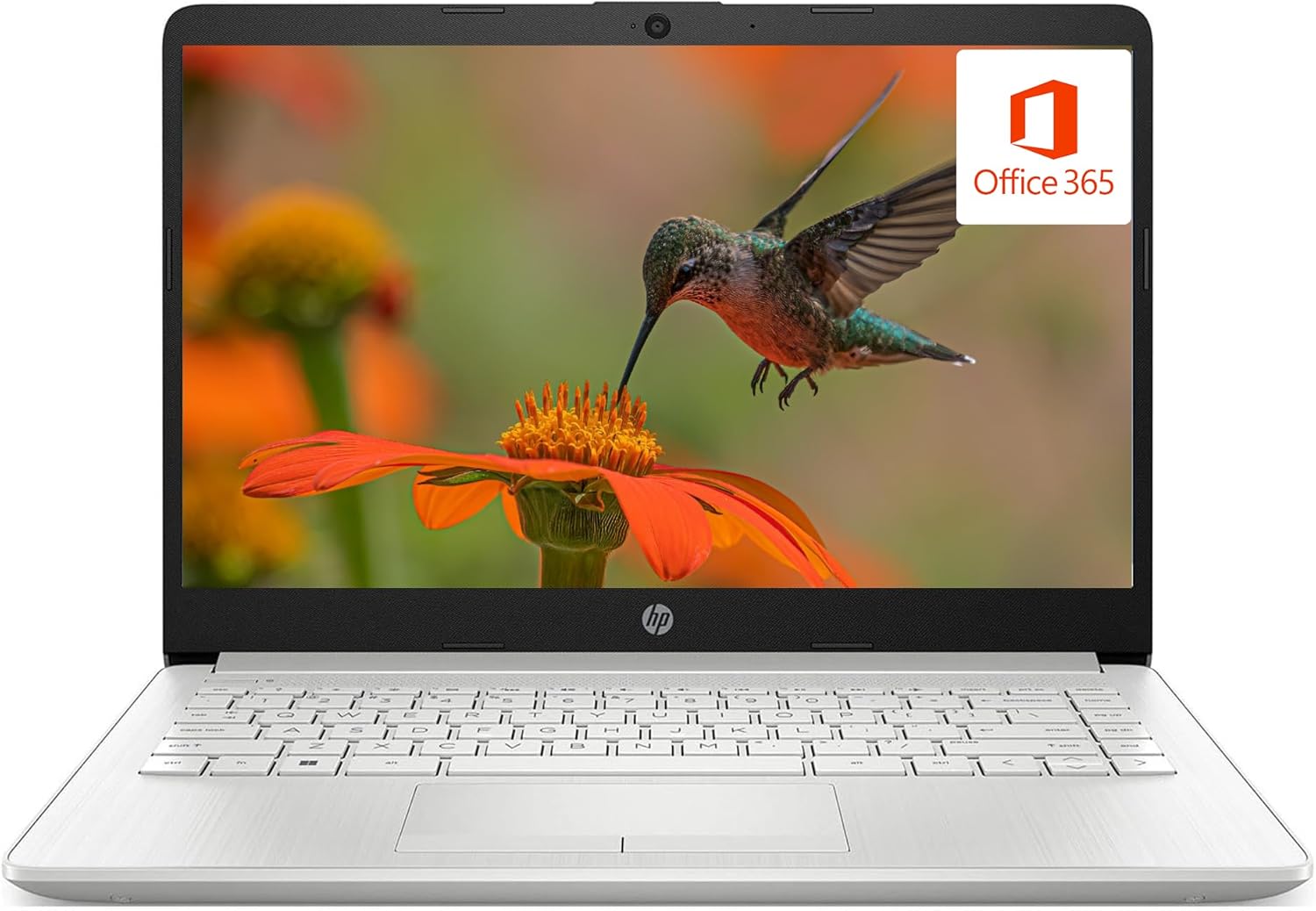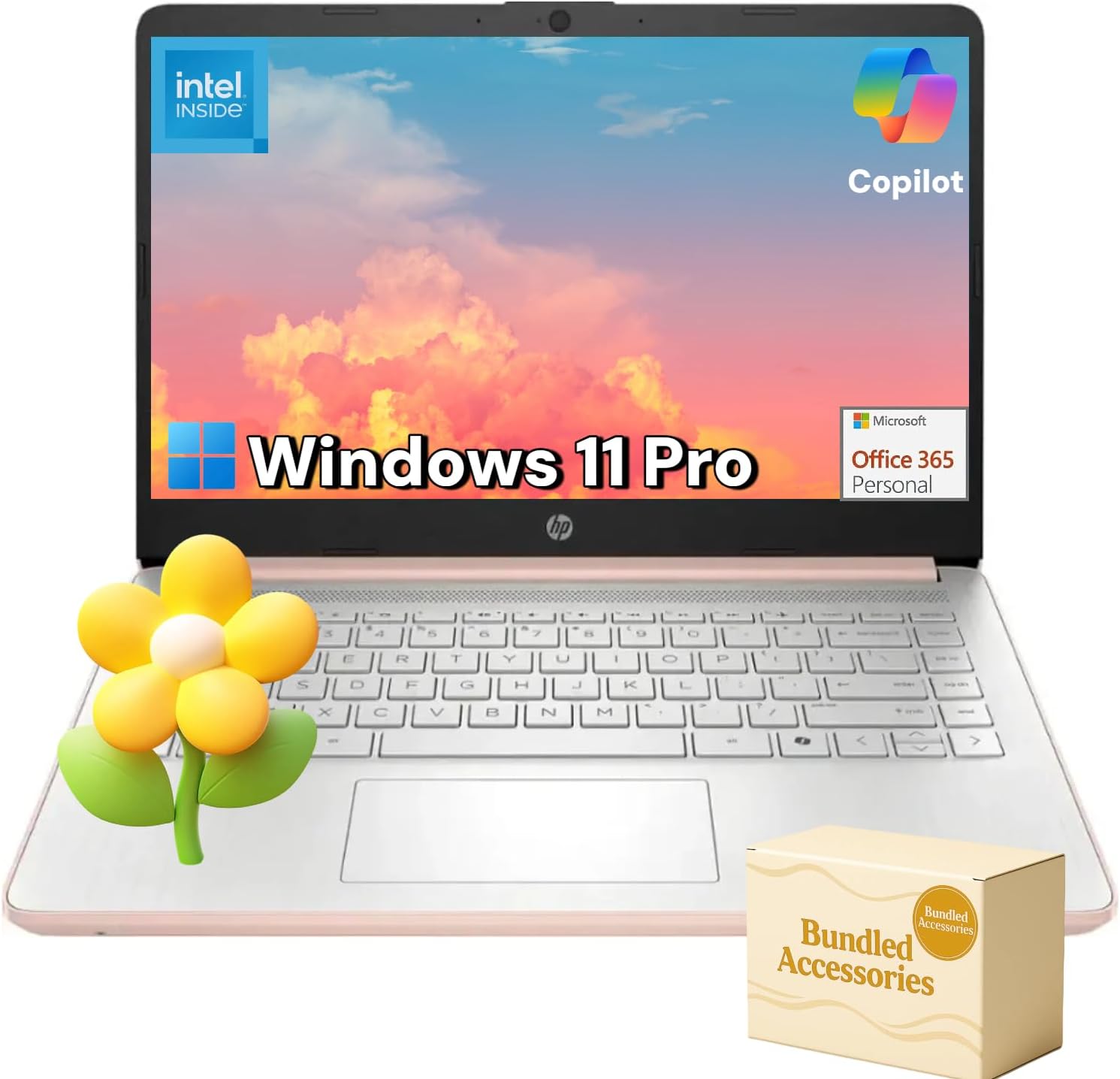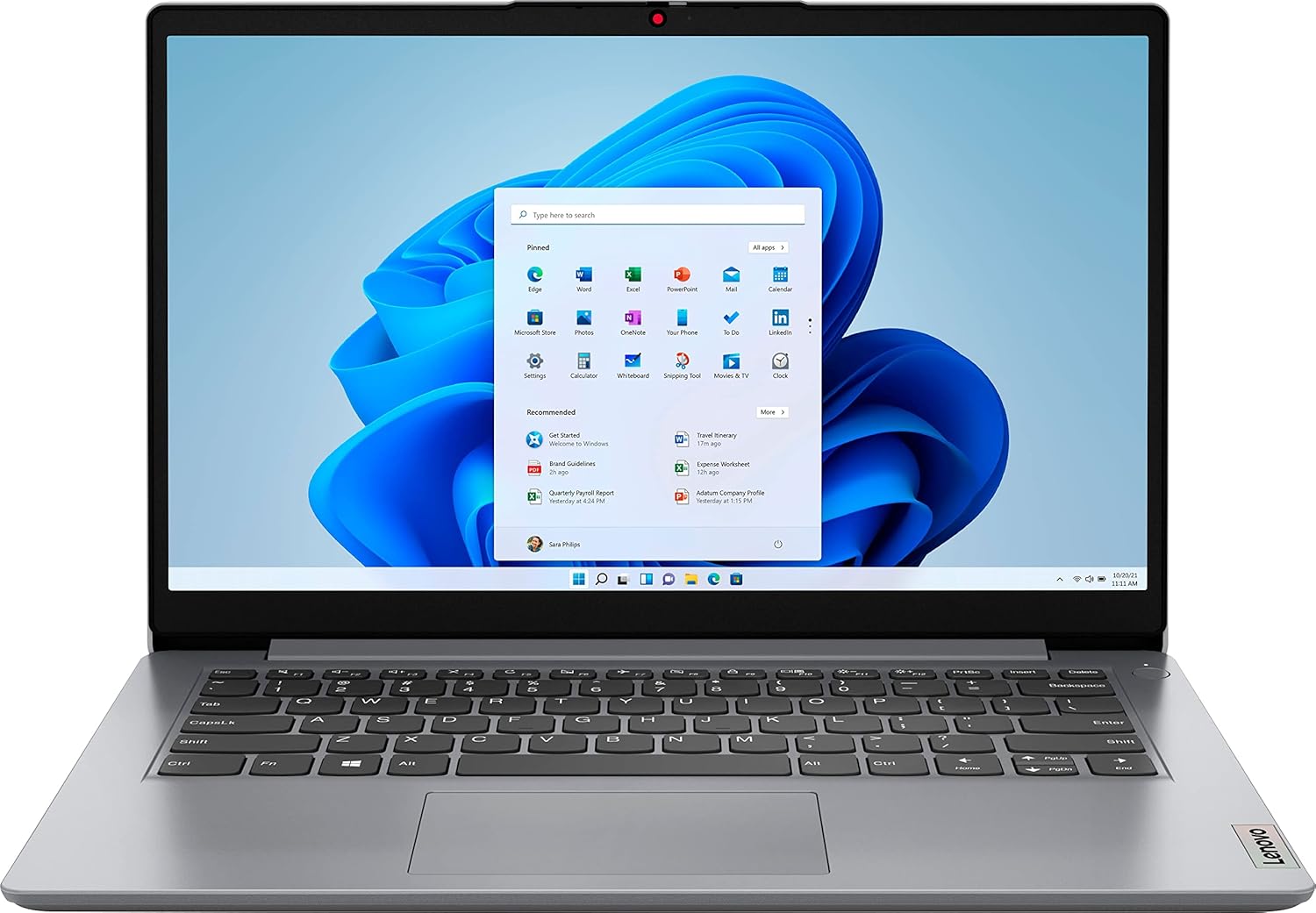Here’s an overview of the Best Laptop For that we’ll explore today:
Bloggers and writers rely on a laptop that blends a comfortable keyboard, long battery life, a legible display, and dependable performance for text-heavy workloads. From budget Chromebooks to Windows-based machines with generous RAM, the 2025 field offers several compelling options that balance cost and capability. In this comparison, I evaluate five laptops (two brands represented: Lenovo and HP) across a price range of $179 to $379.99, focusing on how well each device supports writing apps (word processors, note apps, and browsers with multiple tabs), content creation basics, and day-to-day portability. My approach combines a close reading of specs with practical use-case reasoning, so you can pick the device that best fits your workflow and budget.
Methodology: I assessed each model on core blogging/writing criteria—keyboard quality and typing comfort, screen readability and glare, battery life for mobile work, RAM/CPU headroom for multitasking, local storage versus cloud reliance, and OS considerations (Chrome OS vs Windows 11 Pro/Home). I also weighed expandability (microSD/USB/SD card support) and real-world constraints like screen resolution and weight. While some options lean budget-friendly and cloud-first (Chromebook), others add Windows versatility and Copilot AI features for productivity. The lineup covered here includes 5 distinct configurations (0-based indexing) to illustrate how different trade-offs play out in a writing-focused context.
1. HP Chromebook 14 Laptop
- Brand: HP
- Manufacturer: HP
Overview: This is a budget Chrome OS option with a 14-inch HD display, 4 GB of RAM, and 32 GB of eMMC storage. It weighs about 3.24 pounds and emphasizes long battery life (up to ~13.5 hours) with a lightweight, distraction-free Chrome OS experience. The package includes a Wide Vision HD camera and dual microphones for video calls, plus HP’s 1-year hardware warranty and an ENERGY STAR/EPEAT Silver footprint for green-minded buyers. It’s clearly designed for light writing tasks and cloud-first workflows rather than heavy multitasking or offline processing. Performance and use case: For bloggers who draft primarily in Google Docs or other cloud-based editors, this Chromebook can be a dependable starter. The Celeron N4000 and 4 GB RAM are sufficient for single-document writing, notes, and email, but the 32 GB of storage is limiting if you want ample offline documents or media. The 1366×768 display, while adequate for text, isn’t ideal for long-form editing with many windows opened side-by-side. The Chrome OS environment keeps software updates, security, and maintenance simple, though it means you’ll rely on cloud apps or Android apps for some tasks. This model shines as a “set-it-and-forget-it” writer’s device for daily journaling, lightweight drafts, and travel writing where price and portability trump raw performance.
Pros
- The 1366×768 display, while adequate for text, isn’t ideal for long-form editing with many windows opened side-by-side.
Cons
- The Celeron N4000 and 4 GB RAM are sufficient for single-document writing, notes, and email, but the 32 GB of storage is limiting if you want ample offline documents or media.
2. HP 14″ Student-Laptop 1-Y office365 Back to School
- Brand: HP
- Manufacturer: HP
Overview: This Windows-based 14-inch laptop doubles as a productivity-oriented machine with a generous 16 GB of RAM and a dual-storage arrangement (128 GB UFS plus a 128 GB microSD). It ships with Copilot AI integration and a one-year Microsoft Office 365 license, offering a strong suite of writing and productivity tools right out of the box. The design reads as student-oriented with a pastel finish and a weight around 3.24 pounds, plus a 14-inch HD display and a rear 2 MP camera. The device is clearly aimed at multitaskers who run multiple browser tabs and Office apps simultaneously, rather than mere light browsing. Performance and use case: The 16 GB RAM makes multitasking smoother (multi-tab writing sessions, reference PDFs, and Office apps), and the combination of 128 GB UFS storage with a Ghost Manta SD card gives decent on-device storage and expansion for drafts, media, and offline documents. Copilot AI can assist with drafting and editing workflows, which is appealing for students and writers who want smarter assistance embedded in Windows. Battery life is rated around 7.5 hours, which is competitive in this class but may require a daily charge for heavier travel days. This model suits writers who need robust multitasking, reliable Office integration, and local storage for offline work, all at a mid-range price point (though the exact price isn’t listed).
Pros
- 【Efficient Quad-Core Performance】Boost your productivity with the Intel Processor delivering smooth and efficient performance for everyday tasks. Whether you’re browsing with 20+ tabs open, streaming HD videos, or working on Office applications, this laptop handles it all without lag.
- 【Fast & Expandable Storage】Enjoy seamless multitasking with 16GB DDR4 RAM. The laptop also features 128GB UFS storage plus an additional 128GB MicroSD card, providing plenty of space for documents, photos, and apps. The energy-efficient design ensures long battery life, making it perfect for on-the-go productivity.
- 【14″ HD Micro-Edge Display & Copilot AI】The 14-inch HD BrightView screen (1366×768) features ultra-thin bezels and a 79% screen-to-body ratio, offering sharp, vibrant visuals with reduced eye strain thanks to anti-glare coating. Integrated Copilot AI serves as your intelligent work and school assistant. It streamlines tasks, boosts productivity, and enhances your workflow with intuitive features and smart suggestions, making it a reliable companion for indoor and outdoor use.
Cons
- Battery life is rated around 7.5 hours, which is competitive in this class but may require a daily charge for heavier travel days.
3. HP 14 Premium HD Portable Laptop Computer Students Business
- Brand: HP
- Manufacturer: HP
Overview: A higher-storage Windows option with 16 GB RAM and 256 GB total storage (split across 128 GB eMMC and a 128 GB SD card) touted as a portable, capable daily driver. It runs Windows 11 (Home in S mode with guidance on switching out of S mode) and includes 11 hours of claimed battery life. The design emphasizes a larger storage footprint and multi-tasking comfort for writers who accumulate notes, PDFs, and documents across browser apps and local apps alike. Performance and use case: In practice, the 16 GB of RAM helps with tab-heavy writing sessions and document editing, while the SD card and eMMC combo provide flexible storage options for drafts and media. The display resolution remains 1366×768, which is serviceable for writing but not ideal for media-heavy tasks or precise photo editing. The device’s weight (around 3.75 pounds) and thickness (~0.71 inches) keep it portable, but the CPU (N4120-class) is an older, lower-power chip—better suited for routine word processing, web research, and presentations than for heavy data workloads. This laptop is a good fit for writers who want a Windows machine with ample RAM and local storage at a reasonable price, provided the display resolution is acceptable for their needs.
Pros
- The display resolution remains 1366×768, which is serviceable for writing but not ideal for media-heavy tasks or precise photo editing.
Cons
- May not be suitable for all product users.
- Some users might prefer different features.
4. HP 2025 14″ Student Laptop – Intel Quad-core CPU • Windows 11 Pro
- Brand: HP
- Manufacturer: HP
Overview: This is the premium option in the lineup, delivering Windows 11 Pro, built-in Copilot, and a robust 16 GB RAM configuration. Storage is generous with 128 GB UFS plus a 256 GB micro SD card, and it includes modern connectivity (Wi‑Fi 6) alongside several USB ports and HDMI for flexible workspace setups. Weighing about 3.24 pounds and approximately 0.71 inches thick, it emphasizes mobility with a long battery life claim (up to 11 hours) and a faster 50% battery top-up in 45 minutes. The Rose Gold finish adds a professional, modern aesthetic for students and professionals who want a more premium look and feel. Performance and use case: The Intel N150-based CPU (up to ~3.6 GHz) provides solid single-threaded performance for daily writing workloads, while 16 GB RAM keeps multiple apps open without significant slowdowns. Copilot AI on Windows 11 Pro can be a productivity multiplier for drafting, outlining, and content ideas, making it well-suited for writers who juggle documents, research, and collaboration. The downside remains the 1366×768 display resolution, which is not optimal for dense editing or long-form layout tasks, and the device’s overall price point sits at the higher end of this category. Still, for power users who value Pro features, Copilot, and quick charging, this is a compelling option.
Pros
- Overview: This is the premium option in the lineup, delivering Windows 11 Pro, built-in Copilot, and a robust 16 GB RAM configuration.
- The Rose Gold finish adds a professional, modern aesthetic for students and professionals who want a more premium look and feel. Performance and use case: The Intel N150-based CPU (up to ~3.6 GHz) provides solid single-threaded performance for daily writing workloads, while 16 GB RAM keeps multiple apps open without significant slowdowns.
Cons
- May not be suitable for all product users.
- Some users might prefer different features.
5. Lenovo IdeaPad 1 14 Laptop
- Brand: Lenovo
- Manufacturer: Lenovo
Overview: The Lenovo IdeaPad 1 14 presents the most budget-friendly Windows option in this lineup, with a 14-inch HD display, 4 GB RAM, and 128 GB total storage (split across eMMC and microSD). It ships with Windows 11 in S Mode for security and simplicity, and weighs just over 3 pounds with a slim profile. This model emphasizes portability and an achievable price point, making it attractive for casual writers and students who primarily draft in cloud apps or lightweight office suites. Performance and use case: The N4020 CPU and 4 GB RAM keep expectations modest—ideal for basic writing tasks, emails, and light web browsing with a handful of tabs. The S Mode enhances security but can restrict app installation and sideloading, which may hinder some workflows. The 1366×768 display limits reading comfort for long sessions, and the 64 GB microSD (part of the 128 GB total storage) further constrains offline files. This Lenovo is best for entry-level writers who prioritize price and portability and are comfortable sticking to cloud-based workflows.
Pros
- This model emphasizes portability and an achievable price point, making it attractive for casual writers and students who primarily draft in cloud apps or lightweight office suites. Performance and use case: The N4020 CPU and 4 GB RAM keep expectations modest—ideal for basic writing tasks, emails, and light web browsing with a handful of tabs.
Cons
- The 1366×768 display limits reading comfort for long sessions, and the 64 GB microSD (part of the 128 GB total storage) further constrains offline files.
Frequently Asked Questions
We’ve compiled answers to the most common questions about laptop fors to help you make an informed decision.
Conclusion
The five laptops in this guide cover a practical spectrum for blogging and writing: from the ultra-budget Chromebook that prioritizes battery life and cloud workflows to Windows machines that balance RAM, storage, and productivity features like Copilot.
If your writing routine is cloud-based and portability is paramount, the HP Chromebook 14 is hard to beat for the price. If you require robust multitasking, local Office usage, and more generous storage, the Windows options—especially the premium HP 2025—deliver a more complete productivity experience, with Copilot and longer battery life as notable advantages.
Lenovo’s IdeaPad 1 provides a compelling budget path for basic writing tasks, while the other HP models offer incremental improvements in RAM, storage, and modern connectivity for power users. Choose according to how much you value on-device performance, premium features, and how often you work offline versus online..
